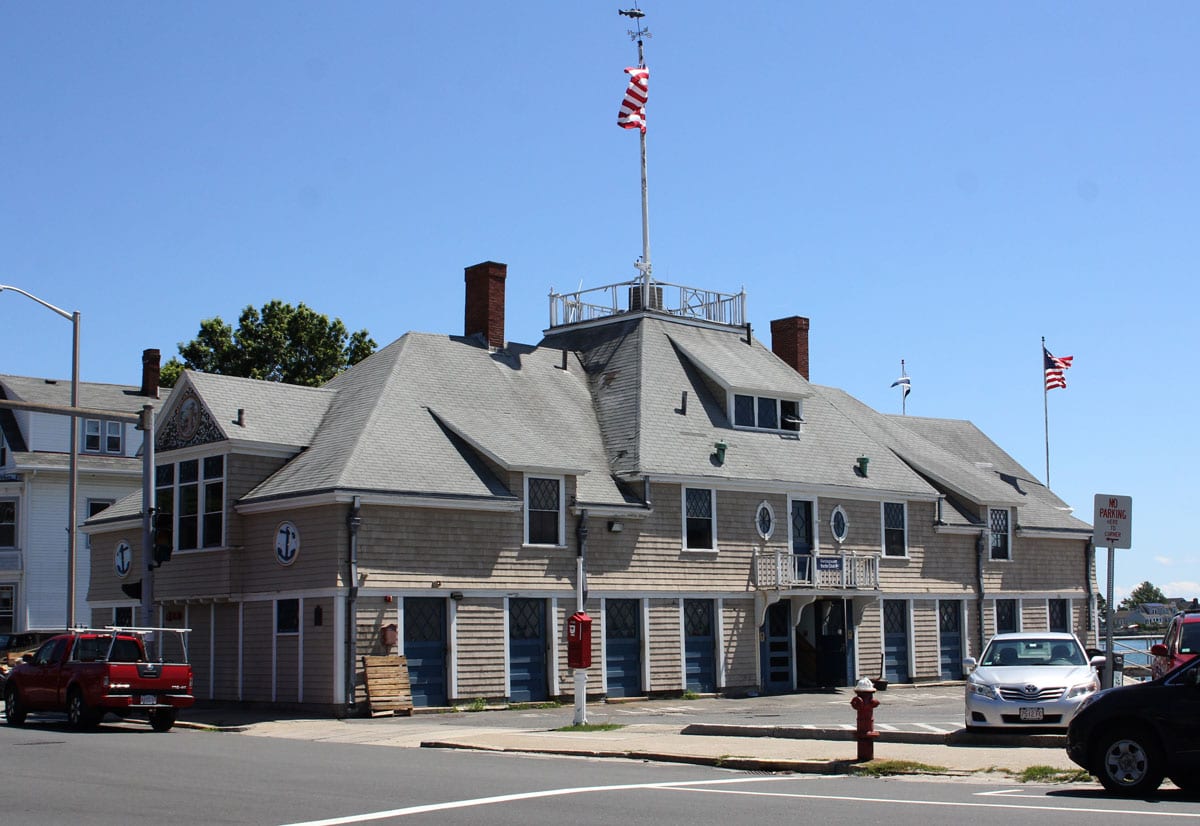SWAMPSCOTT — The Swampscott Fish House will undergo fewer renovations after the town was denied a $50,000 grant.
Town officials had hoped that a historic preservation restriction placed on the Swampscott Fish House, which was approved at Town Meeting in May, would land them a $50,000 Mass Historical grant for renovations.
Officials said the designation was required in order to be eligible for the grant. The designation is a formal way of showing that the town intends to preserve the building, located at 391 Humphrey St., in a historically appropriate manner.
The Fish House is already on the Massachusetts Historic Register, but the historical preservation restriction puts more protection, and exterior work done on the building would require Massachusetts Historical Commission (MHC) permission, officials said.
With the restriction, any proposed substantial alteration to the building interior, exterior or surrounding property must be presented to the MHC prior to the start of construction in the form of an alteration request for review and prior approval. Routine maintenance would not trigger a review, officials said.
The estimated cost of renovations needed is $95,000. In May 2016, Town Meeting appropriated $90,000 to do the work on the Fish House, but the grant would have allowed the town to do additional work, according to Gino Cresta, assistant town administrator and department of public works director.
Town Administrator Sean Fitzgerald said the grant is competitive, and intends to apply again. He said the town hasn’t recorded the approved historic preservation restriction, which was contingent upon receiving the grant. Therefore, the restriction, and extra layer of approval needed for renovations, is not in effect.
Fitzgerald said officials would have to file some legal documents to record a change to the deed to include the preservation restriction. He said the town doesn’t plan to record it unless the grant is received. The next round of grant funding wouldn’t be until next year, he added.
“It’s part of grant writing that you have to understand that sometimes you have to resubmit a few times before you get approval,” Fitzgerald said. “We’ve had great success working with the Mass Historical Commission. We’ll get right back at it and hope we’ll get funding the next round.”
Fitzgerald said the Fish House is one of the more unique properties in Massachusetts, in regards to its legacy with the fishing industry. He said it is one of the few active fish houses left in New England, and it would be great to get some assistance from the Mass Historical Commission to keep the building in a good standard of repair.
Cresta said the renovations are going to be scaled down. Prior to Town Meeting, he said repairs would include new windows, a new asphalt roof with a rubber roof membrane, painting the building, repairing the widow’s walk railing, a new balcony railing, a new roof hatch, and a new interior ladder with a cage.
Without the grant funding, Cresta said only a portion of those renovations could be done, which will include the new roof, repairing the widow’s walk railing and repairing the balcony railing. When he puts the project out to bid in the fall, he said the roof hatch and interior ladder with a cage will be alternates. Contractors have to be certified to work on historical buildings.
Cresta said the railing repairs were chosen as a matter of safety, and a new roof is needed because there are some leaks inside the building. The windows and paint were eliminated as they are more cosmetic concerns.
Cresta previously said some renovations were done on the building 12 years ago, which included new windows and doors, and painting the building. A new roof was installed 20 years ago. He said there is a lot of damage to the building and the renovations done a dozen years ago are starting to deteriorate as a result of the saltwater and the ocean.

